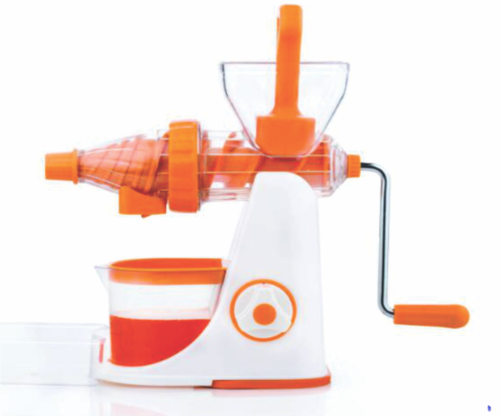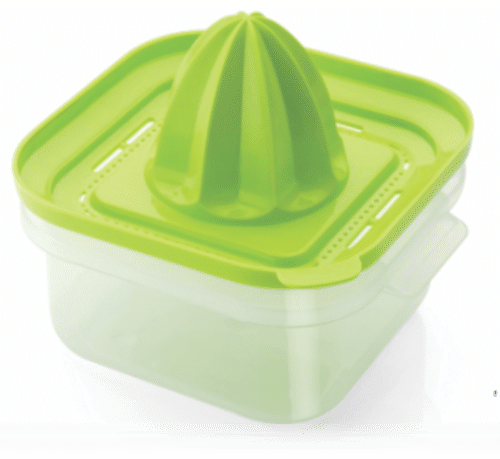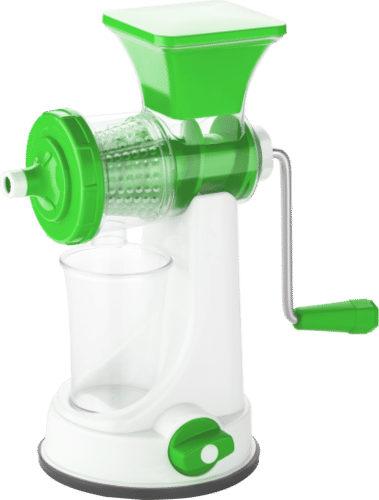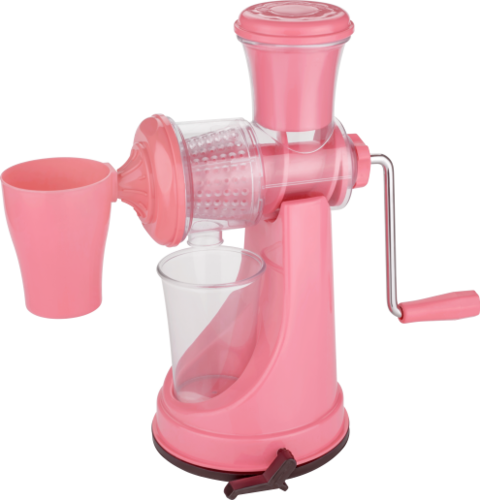Fruit Juicer
Fruit Juicer Specification
- Product Type
- Fruit Juicer
- Material
- Plastic
- Metal Type
- Stainless Steel
- Plastic Type
- ABS
- Size
- as per product
- Color
- Multicolour
- Weight
- as per product Grams (g)
- Thickness
- as per product Millimeter (mm)
- Function
- Fruit Juicer
Fruit Juicer Trade Information
- Minimum Order Quantity
- 4 Pieces
- FOB Port
- Mundra
- Payment Terms
- Letter of Credit (L/C), Cash Advance (CA), Telegraphic Transfer (T/T), Cash in Advance (CID), Cheque
- Supply Ability
- Piece
- Delivery Time
- 1 Week
- Sample Available
- Yes
- Sample Policy
- Contact us for information regarding our sample policy
- Packaging Details
- as per product
- Main Domestic Market
- Jammu and Kashmir, Tripura, Manipur, Chandigarh, Himachal Pradesh, Andaman and Nicobar Islands, Pondicherry, Nagaland, Uttarakhand, Daman and Diu, Dadra and Nagar Haveli, Lakshadweep, South India, East India, West India, Assam, Arunachal Pradesh, Bihar, Goa, Jharkhand, Karnataka, Madhya Pradesh, Maharashtra, Mizoram, Meghalaya, Punjab, Rajasthan, Sikkim, Tamil Nadu, Telangana, West Bengal, Uttar Pradesh, Haryana, Delhi, Gujarat, North India, Andhra Pradesh, Kerala, Central India, Odisha, Chhattisgarh, All India
- Certifications
- Contact us for details
About Fruit Juicer
Think about the juicer's commitment of nourishment. You're taking care of carrots, kale, and apples into your machine, correct? What's more, aren't turmeric, ginger, cayenne, and other regular flavors great for you? Certainly, yet a juicer separates fluid from leafy foods, passing on a crush of supplement stuffed solids to be disposed of. Despite what food sources you use, the leftover fluids that gather - the juice - will be high in sugar. What's more, precisely no grams of the organic product's heart-solid fiber will remain. Then again, when you throw products of the soil into a blender, the edge crushes the whole piece of produce. The outcome? You'll wind up drinking every one of the nutrients, minerals, and fiber.
Product details
|
Blade Material |
Stainless Steel |
|
Model Name/Number |
N-11-01 |
|
Grinder Type |
Juicers |
|
Brand |
National |
|
Usage/Application |
Kitchen |
|
Body Material |
Plastic |
|
Automation Grade |
Manual |
FAQs of Fruit Juicer:
What sort of juicer is best?
Is a juicer better than a blender?
Assuming that you incline toward velvety smoothies that are more filling and contain fixings other than products of the soil, then, at that point, a blender is your smartest choice. Blenders are more adaptable than juicers, and can be utilized for other kitchen assignments. On the off chance that you need more strong and concentrated juices that aren't as filling, go for a juicer
Are juicers solid?


Price:
- 50
- 100
- 200
- 250
- 500
- 1000+
More Products in Fruit & Vegetable Juicer Category
Orange Juicer - Small
Price 24 INR
Minimum Order Quantity : 20 Pieces
Size : as per product
Color : Multicolour
Metal Type : Stainless Steel
Function : fruit and vegetable juice
Ultra Excellent Juicer
Price 176 INR
Minimum Order Quantity : 6 Pieces
Size : Standard
Color : White and blue
Metal Type : Stainless Steel
Function : Manual Juicer
Ultra Excellent Plus Juicer
Price 182 INR
Minimum Order Quantity : 6 Pieces
Size : Standard
Color : Blue and white
Metal Type : Stainless Steel
Function : Manual Juicer
Fruit and Veg. Juicer Prime Plus
Price 200 INR
Minimum Order Quantity : 6 Pieces
Size : Standard
Color : Pink
Metal Type : Stainless Steel
Function : manual juicer
GST : 24AANCA2976P1ZZ
 |
APEX HOMENEEDS PVT. LTD.
All Rights Reserved.(Terms of Use) Developed and Managed by Infocom Network Private Limited. |



 Send Inquiry
Send Inquiry






